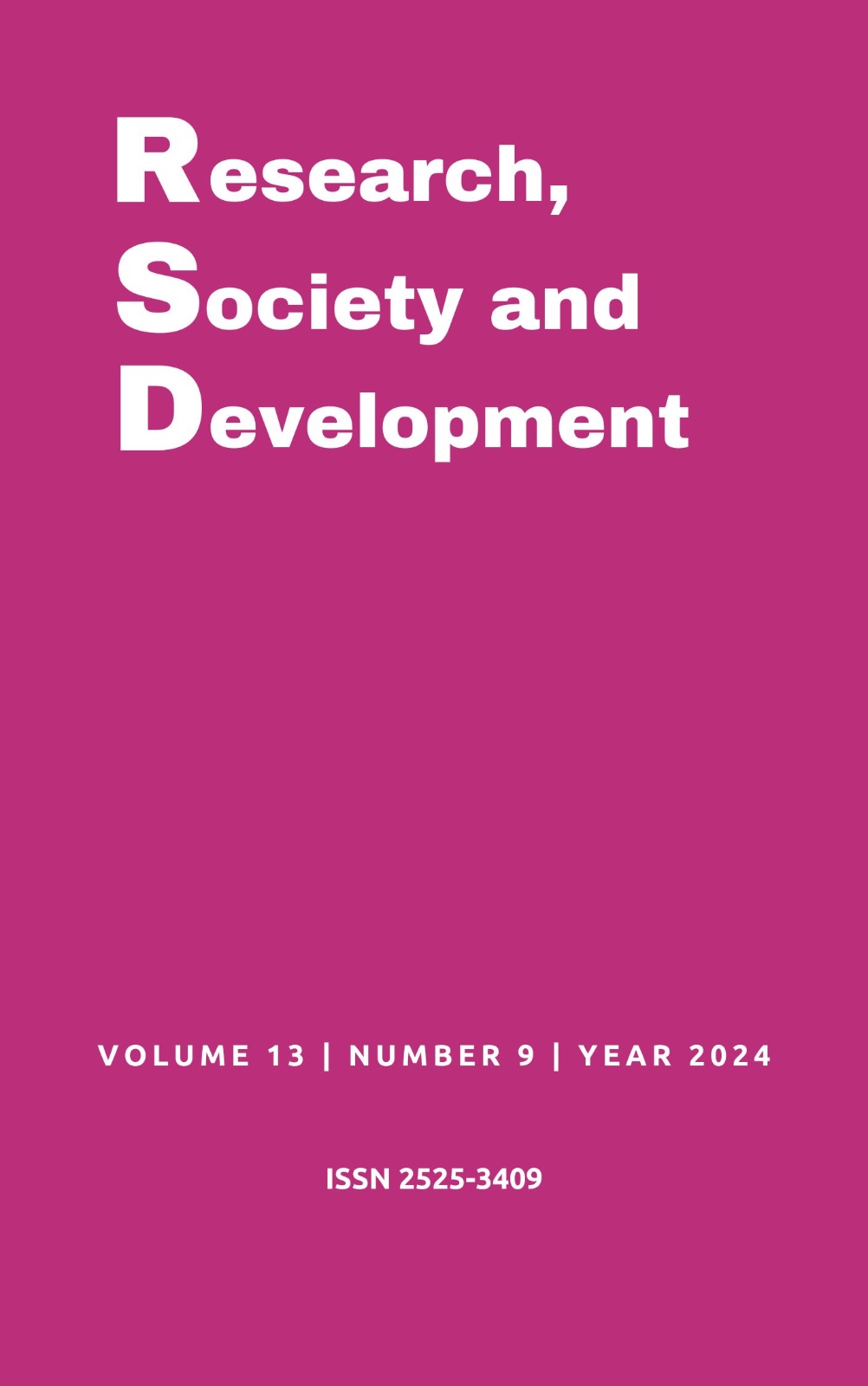Contribution of voluntary monitoring in the training professionals: An experience report
DOI:
https://doi.org/10.33448/rsd-v13i9.46760Keywords:
Tutoring; Teaching; Learning; Pharmacy Education.Abstract
Academic monitoring is a teaching-learning mechanism to assist the production and understanding of university knowledge, performing pedagogical and scientific activities in education. Participation in monitoring programs in higher education, over the years, has become strongly present in graduation, where the importance of the program in the country towards teaching as a career choice is notable, providing the student with the opportunity to recognize themselves in area from the beginning in your chosen career. In this sense, the objective of this work is to demonstrate the contribution of the monitoring process in the pharmacy course through an experience report. This work is a descriptive study, experience report type, carried out at the Federal University of Amazonas, from March to July 2021 with the discipline of Cytology, Histology and Embryology remotely. The discipline monitors were responsible for monitoring theoretical classes, assisting teachers, providing guidance to students, correcting reports, answering questions and others. It was found that in addition to the difficulties already established in face-to-face teaching, the remote period brought new obstacles that made it necessary to strengthen the bond between students and monitors, as well as with teachers, providing more opportunities to resolve doubts and address the programmatic content in a way that facilitates the transmission of knowledge. In this way, it was observed that monitoring facilitated the teaching-learning process of pharmacy students in the discipline and the development of pedagogical skills with the connection between students and monitors.
References
Andrade, E. G. R. D., et. al. (2018). Contribución de la tutoría académica para el proceso enseñanza-aprendizaje en la graduación en enfermería. Revista Brasileira de Enfermagem, 71, 1596-1603.
Bastos, M. H. C. (1999). O ensino mútuo no Brasil (1808-1827). A escola elementar no século XIX: o método monitorial/mútuo. Ediupf, p. 95-118.“.
Beltrán Llera, J., et al (1996). Psicología de la Instrucción I. Variables y procesos básicos. Madrid: Síntesis.
Brasil. (1968). Lei Federal de número 5.540 de 28 de novembro de 1968. https://www.planalto.gov.br/ccivil_03/leis/l5540compilada.htm#:~:text=LEI%20N%C2%BA%205.540%2C%20DE%2028%20DE%20NOVEMBRO%20DE201968.&text=Fixa%20normas%20de%20organiza%C3%A7%C3%A3o%20e,m%C3%A9dia%2C%20e%20d%C3%A1%20outras%20provid%C3%AAncias.&text=9.394%2C%20de%201996)-,Art.,na%20data%20de%20sua%20publ ica%C3%A7%C3%A3o.
Brasil. (1996). Lei nº 9.394, de 20 de dezembro de 1996 http://portal.mec.gov.br/seed/arquivos/pdf/tvescola/leis/lein9394.pdf
Brasil. (2013). Resolução nº 006/2013 – CONSEPE. https://dfil.ufam.edu.br/attachments/article/36/Resolu%C3%A7%C3%A3o%2006-2013%20CEG.pdf.
Brasil. (2022).Resolução CNE/CES 2/2002. Conselho Nacional de Educação (CNE). Diário Oficial da União, Brasília, 4 de março de 2002. Seção 1, p. 9.
Conceição, E. J., et. al. (2017). A importância da monitoria acadêmica no processo de ensino-aprendizagem na formação dos alunos de fisioterapia e medicina: Relato de Experiência. II Congresso Brasileiro de Ciências da Saúde
Frison, L. M. B. (2016). Monitoria: uma modalidade de ensino que potencializa a aprendizagem colaborativa e autorregulada. Pro-posições, 27(1), 133-153.
Gaia, A. C. A. & Gaia, A. R. (2020). Relato de experiência: roteiros para elaboração de trabalhos de conclusão de cursos de licenciatura. Ed. CVR.
Giles, T. R. (1987). História da educação. EPU–Editora Pedagógica e Universitária. Ltda.
Juliani, L. M., et. al. (2022). O ensino remoto emergencial em curso de engenharia de produção: perspectiva de estudantes. Brazilian Journal of Development, 8(1), 4901-4916.
Lima, A. S. et al. (2020). Educação do campo e aulas remotas: desenvolvendo competências e habilidades em escolas campesinas. VII Congresso Nacional De Educação.
Manacorda, M. A. (1989). História da educação: Da antiguidade aos nossos dia. Cortez editora.
Matoso, L. M. L. (2014). A importância da monitoria na formação acadêmica do monitor: um relato de experiência. CATUSSABA-ISSN 2237-3608, 3(2), 77-83
Ramalho, B. L., & Núnez, I. B. (1998). A formação inicial e a definição de um “modelo profissional”. Encontro de Pesquisa Educacional do Nordeste. Formação de professores (I), Natal, EDUFRN.
Schneider, H. N. (2006). Educação a distância via internet (e-learning): Contextualização (Know What), Justificativa (Know Why), Implantação (Know How). Revista Candeeiro, 9(13), 14.
Seabra, A. D., et, al.. (2023). Metodologias ativas como instrumento de formação acadêmica e científica no ensino em ciências do movimento. Educação e Pesquisa, 49, e255299.
Souza, J. P. N. D., & Oliveira, S. D. (2023). Monitoria acadêmica: uma formação docente para discentes. Revista Brasileira de Educação Médica, 47(4).
Tulaskar, R., & Turunen, M. (2022). What students want? Experiences, challenges, and engagement during Emergency Remote Learning amidst COVID-19 crisis. Education and information technologies, 27(1), 551-587.
Downloads
Published
How to Cite
Issue
Section
License
Copyright (c) 2024 Manuela Crispim Morais Abreu; Marcela dos Santos Magalhães

This work is licensed under a Creative Commons Attribution 4.0 International License.
Authors who publish with this journal agree to the following terms:
1) Authors retain copyright and grant the journal right of first publication with the work simultaneously licensed under a Creative Commons Attribution License that allows others to share the work with an acknowledgement of the work's authorship and initial publication in this journal.
2) Authors are able to enter into separate, additional contractual arrangements for the non-exclusive distribution of the journal's published version of the work (e.g., post it to an institutional repository or publish it in a book), with an acknowledgement of its initial publication in this journal.
3) Authors are permitted and encouraged to post their work online (e.g., in institutional repositories or on their website) prior to and during the submission process, as it can lead to productive exchanges, as well as earlier and greater citation of published work.

